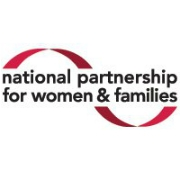
“When this pandemic struck, we just were not ready for that essential public health order to stay home if you feel sick. That is not something someone can do if they are working at the minimum wage or close to the minimum wage,” says Jessica Mason, senior policy analyst for the National Partnership for Women and Families.

Congress passed the Families First Coronavirus Response Act. It includes up to two work-weeks of job-protected paid sick days to address their own or a loved one’s health, self-isolation, or quarantine needs. The law also establishes 12 weeks of job-protected family leave for employees caring for a minor child whose school or usual place of care has been closed due to a public health emergency.
“But unfortunately, there are serious gaps in that law. Large employers were completely excluded. The law allowed some exemptions for healthcare workers and small employers. If all those folks opt-out, that’s how you get 2.3 million people in Indiana not being covered by this law,” says Mason.
Indiana does not have a statewide law in place to address that problem.
“You can pass a law requiring all employers to let their employees earn paid sick days. That’s pretty basic,” says Mason. “Employers should understand that there’s a lot of research that shows when people go to work when they’re sick, they’re not able to focus well. They could get others sick. That actually costs businesses in the long run.”
Indiana ranks 5th in the U.S. for the largest share of women in frontline industries, which Mason says puts them at greater risk for coronavirus. They make up 67% of workers in all frontline industries in Indiana, including 82% of health care workers and 55% of workers in grocery, convenience, or drug stores. Women aren’t the only ones at risk, she says.
“But we also see, in Indiana, black workers are over-represented in a lot of frontline industries. Asian American and Pacific Islanders are over-represented as healthcare workers. Those folks are going to be a little bit more exposed right now at a little bit higher risk, even though they might be less likely to have those paid sick day benefits,” says Mason.
Mason did say Indiana Governor Eric Holcomb has taken the coronavirus more seriously than other governors across the country.
Only 19 percent of all workers have paid family leave through an employer.


